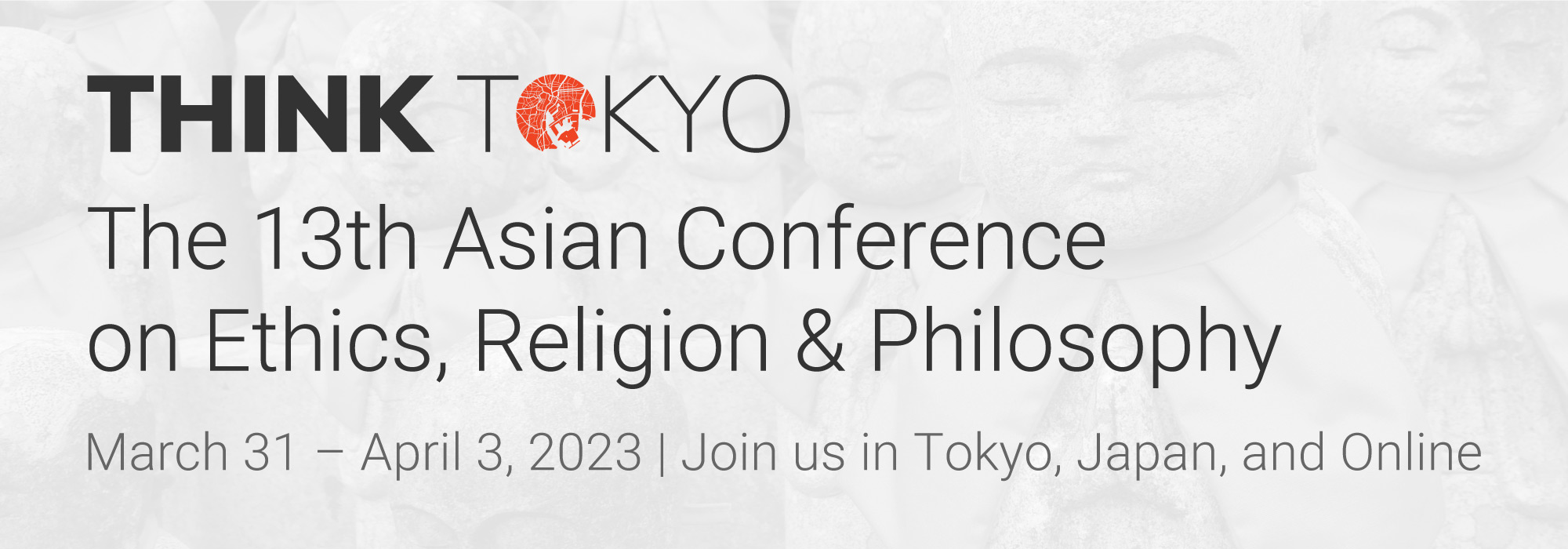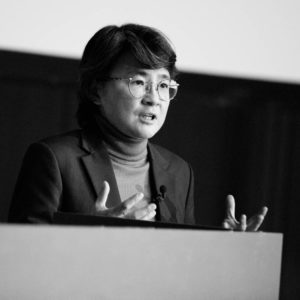Presentation Schedule
Recent Developments Concerning the Separation of Religion and State in Contemporary Japan
The ongoing impact of religion on the state (and vice versa) remains an "evergreen" and controversial phenomenon in many countries of the world. Today, the split on national lines between the Christian Orthodox Church in Russia and Ukraine reveals once again how religions are both impacted by and impact upon nations at war. Even more recently, the relationship between Sweden and Turkey became strained due to the burning of the Quran by a right-wing group in the former country, and support for Kurdish groups fighting for their freedom from Turkey, but which Turkey views as terrorist groups.
The purpose of this panel is to introduce recent examples in Japan at both the national and local levels that illustrate the ongoing conflict that Japan, too, has in this regard. Professor Frank Ravitch will discuss relevant developments in Japan at the national level that followed in the wake of the assassination of former Prime Minister Shinzo Abe on July 8, 2022. These developments led to the linking of both Abe and numerous other Japanese politicians to the controversial Unification Church (also known as the "Moonies"). Prof. Ravitch will discuss the current attempts in the Japanese Diet to craft legislation that will make it easier to ban religious organisations that are accused of exerting undue pressure on their adherents to donate large sums of money to their religion of choice.
Dr Brian Victoria will introduce both sides of an ongoing court case in Kyoto concerning a local city government-affiliated neighbourhood association that stands accused of allocating some of its yearly membership funds to support activities of area Shinto shrines and Buddhist temples. This violates the postwar Japanese Constitution, specifically Article Twenty of which states in part: "Freedom of religion is guaranteed to all. No religious organisation shall receive any privileges from the state, nor exercise any political authority. No person shall be compelled to take part in any religious act, celebration, rite, or practice." The question will be asked whether this and other similar neighbourhood associations throughout the country are simply protecting long-established Japanese customs and culture, or, on the contrary, violating the constitution by contributing membership funds to specific religious organisations.
Biographies
Frank Ravitch
Michigan State University College of Law, United States
Frank S. Ravitch is Professor of Law and Walter H. Stowers Chair in Law in Religion at the Michigan State University College of Law. He also directs the MSU College of Law's Kyoto Japan Program. He is the author of Freedom’s Edge: Religious Freedom, Sexual Freedom, and the Future of America (Cambridge University Press, 2016) (Nominated for a Prose Award); Marketing Creation: The Law and Intelligent Design (Cambridge University Press 2012), Masters of Illusion: The Supreme Court and the Religion Clauses (NYU Press 2007); Law and Religion: Cases, Materials, and Readings (West 2004)(2nd Ed. 2008) (3rd Ed. 2015 with Larry Cata Backer), School Prayer and Discrimination: The Civil Rights of Religious Minorities and Dissenters (Northeastern University Press, 1999 & paperback edition 2001). He is co-author, with the late Boris Bittker and with Scott Idleman, of the first comprehensive treatise on Law and Religion in more than one hundred years, Religion and the State in American Law (Cambridge University Press 2015) (this project was supported by a generous grant from the Lilly Endowment). He is co-author of Employment Discrimination Law (Prentice Hall, 2005) (with Pamela Sumners and Janis McDonald).
Professor Ravitch's articles, which have appeared in a number of highly regarded journals, have primarily focused on law and religion in the US and Japan. He has also written about civil rights law and disability discrimination. He has authored a number of amicus briefs to the US Supreme Court and has given numerous academic presentations nationally and internationally. In 2001, he was named a Fulbright scholar and served on the law faculty at Doshisha University in Japan. He has also made dozens of public presentations explaining the law to school groups, community groups, and service clubs, and has served as an expert commentator for print and broadcast media.
Professor Ravitch's current projects include a book on the Japanese Legal System (co-authored with Colin Jones), a chapter on law and religious tradition, and a project focusing on Law, Religion, and Authoritarianism. He speaks English and has basic conversational skills in Japanese and Hebrew.
Haruko Satoh
Osaka University, Japan
Haruko Satoh is Specially Appointed Professor at the Osaka School of International Public Policy (OSIPP), where she teaches Japan’s relations with Asia and identity in international relations. She is also co-director of the OSIPP-IAFOR Research Centre and she was previously part of the MEXT Reinventing Japan project on “Peace and Human Security in Asia (PAHSA)” with six Southeast Asian and four Japanese universities.
In the past she has worked at the Japan Institute of International Affairs (JIIA), Chatham House, and Gaiko Forum. Her interests are primarily in state theory, Japanese nationalism and identity politics. Recent publications include: “China in Japan’s Nation-state Identity” in James DJ Brown & Jeff Kingston (eds) Japan’s Foreign Relations in Asia (Routledge, 2018); “Japan’s ‘Postmodern’ Possibility with China: A View from Kansai” in Lam Peng Er (ed), China-Japan Relations in the 21st Century (Palgrave Macmillan, 2017); “Rethinking Security in Japan: In Search of a Post-‘Postwar’ Narrative” in Jain & Lam (Eds.), Japan’s Strategic Challenges in a Changing Regional Environment (World Scientific, 2012); “Through the Looking-glass: China’s Rise as Seen from Japan”, (co-authored with Toshiya Hoshino), Journal of Asian Public Policy, 5(2), 181–198, (July 2012); “Post- 3.11 Japan: A Matter of Restoring Trust?”, ISPI Analysis No. 83 (December 2011); “Legitimacy Deficit in Japan: The Road to True Popular Sovereignty” in Kane, Loy & Patapan (Eds.), Political Legitimacy in Asia: New Leadership Challenges (Palgrave Macmillan, 2011), “Japan: Re-engaging with China Meaningfully” in Tang, Li & Acharya (eds), Living with China: Regional States and China through Crises and Turning Points, (Palgrave Macmillan, 2009).
Brian Victoria
Oxford Centre for Buddhist Studies, United Kingdom
Brian Victoria is a native of Omaha, Nebraska and a 1961 graduate of Nebraska Wesleyan University in Lincoln, Nebraska. He holds a MA in Buddhist Studies from Sōtō Zen sect-affiliated Komazawa University in Tokyo, and a PhD from the Department of Religious Studies at Temple University.
In addition to a second, enlarged edition of Zen At War (Rowman & Littlefield, 2006), Brian's major writings include Zen War Stories (RoutledgeCurzon, 2003); an autobiographical work in Japanese entitled Gaijin de ari, Zen bozu de ari (As a Foreigner, As a Zen Priest), published by San-ichi Shobo in 1971; Zen Master Dōgen, coauthored with Prof. Yokoi Yūhō of Aichi Gakuin University (Weatherhill, 1976); and a translation of The Zen Life by Sato Koji (Weatherhill, 1972). In addition, Brian has published numerous journal articles, focusing on the relationship of not only Buddhism but religion in general, to violence and warfare.
From 2005 to 2013 Brian was a Professor of Japanese Studies and director of the AEA “Japan and Its Buddhist Traditions Program” at Antioch University in Yellow Springs, Ohio, United States. From 2013 to 2015 he was a Visiting Research Fellow at the International Research Center for Japanese Studies in Kyoto, Japan. His latest book, Zen Terror: The Death of Democracy in Prewar Japan was published by Rowman & Littlefield in February 2020. Brian is currently a Senior Research Fellow at the Oxford Centre for Buddhist Studies and a fully ordained Buddhist priest in the Sōtō Zen sect.
About the Presenter(s)
-Frank S. Ravitch is Professor of Law and Walter H. Stowers Chair in Law in Religion at the Michigan State University College of Law
-Haruko Satoh is Specially Appointed Professor at the Osaka School of International Public Policy (OSIPP)
-Brian is currently a Senior Research Fellow at the Oxford Centre for Buddhist Studies and a fully ordained Buddhist priest in the Sōtō Zen sect
See this presentation on the full schedule – Friday Schedule








Comments
Powered by WP LinkPress